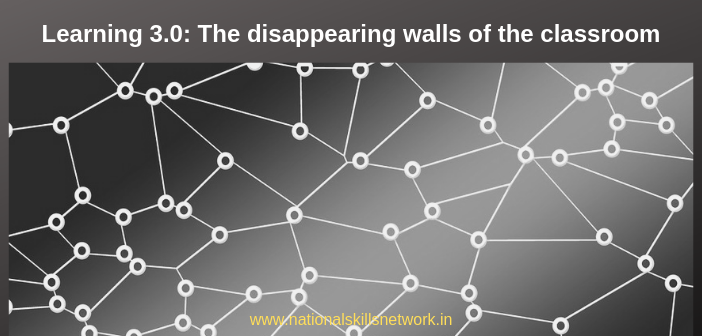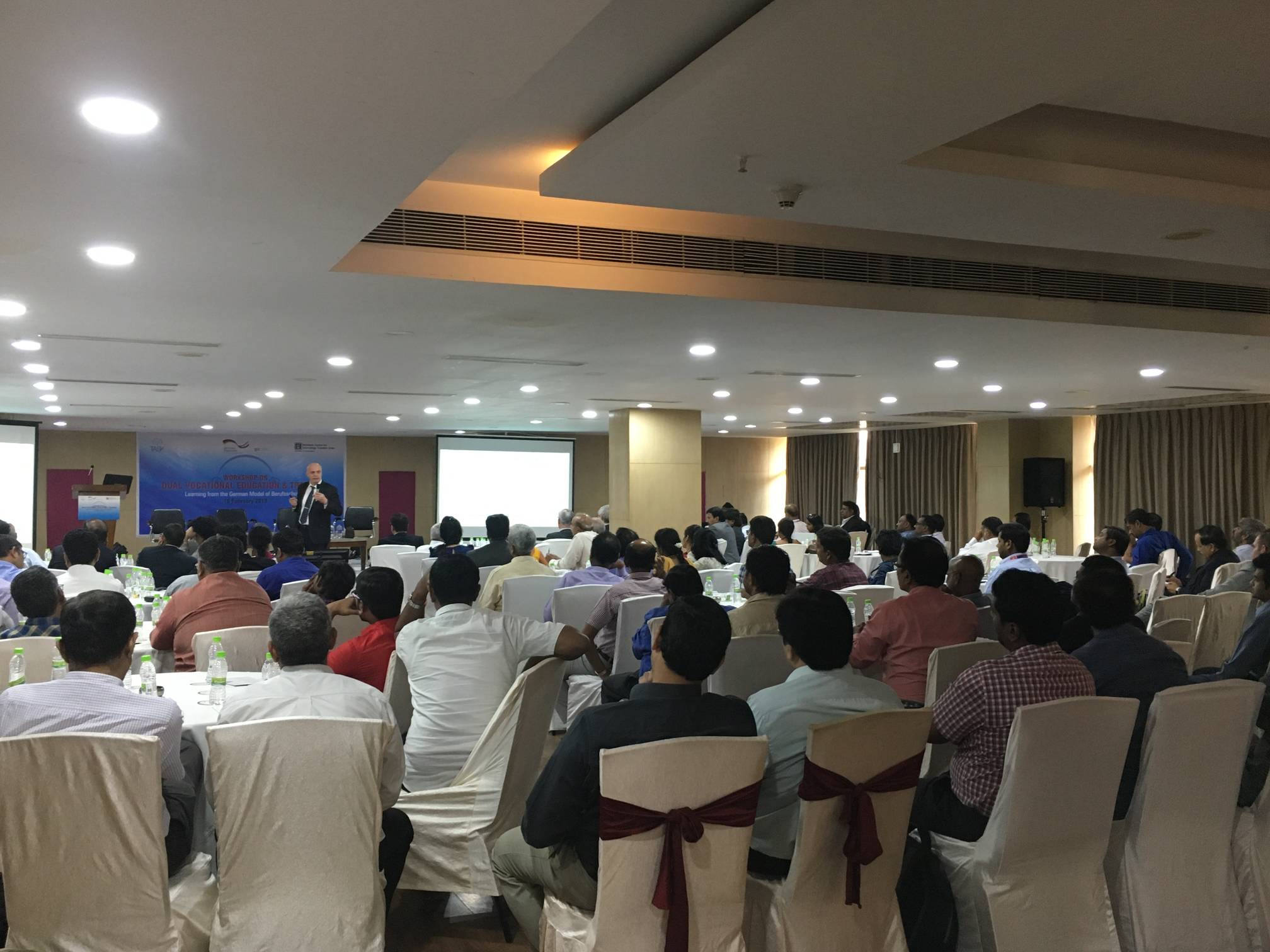
Being walled often gives a sense of security and protection. But, in the context of a classroom, these walls could prove to be barriers that block easy flow of knowledge. Today, learning 3.0 is ubiquitous. Thanks to technology, it happens all the time, everywhere, and mostly at the workplace. Look back at the learning that gets transacted through all our actions and interactions, either consciously or without being aware of it. What if this learning could be converted into credits for a Degree program? Perhaps this would have helped many in getting formally qualifications based on years of work. Why not provide this opportunity to today’s youth who enter the workplace at a young age.
Today’s classroom is not limited to the four walls nor is it confined to an e-learning course. It has got seamlessly integrated with the place of work, home, social media and professional networks.
An example from the services industry:
The services industry is getting rapidly disrupted with digital technologies by creating new opportunities for work-integrated learning. Use of hand-held and mobile devices to fulfill customer orders, rapid growth of service aggregators has brought in a new culture of customer service rating and reviews by incentivizing feedback and making it integral to the entire process. Think of an e-commerce customer care executive or a tour guide assigned from an online travel booking portal, or a plumbing home service or an automotive service center technician who records your feedback within certain parameters.
Every piece of feedback, when taken seriously, has great potential to improve the service and enhance the knowledge and skills of the executives. A rating on a certain scale has an inbuilt mechanism to assess the competencies of workforce and make them eligible for rewards and recognition. The process of creating star performers and the performance criteria they meet or excel in, could also be used to formally recognise the learning that happened on the job.
In the case of service executives, whose job roles are mostly focused on customer interaction, problem solving, conflict management and other skills, the performance and knowledge criteria listed in most of the National Occupational Standards are based on an ideal scenario in an industry. For example, an online customer executive, may solve an issue in a more effective way that what was formally taught to her during training and an auto service technician could have serviced the car component by recalling some tips he had viewed on an YouTube video. They are able to delight the customer through their own ways of continuous knowledge acquisition and application on the job.
 Currently, there is no provision to channelize this learning into a formal qualification such as a Diploma or a Degree in the context of work-integrated learning. Some ways of achieving this alignment:
Currently, there is no provision to channelize this learning into a formal qualification such as a Diploma or a Degree in the context of work-integrated learning. Some ways of achieving this alignment:
- Bring classroom to the workplace – The notion of a traditional classroom with teacher or the trainer transferring knowledge and skills needs to be complemented with an anytime anywhere learning in various social contexts. This includes workplace, home and social situations where different types of interactions take place. An NSQF compliant training program prepares the workforce to perform on the job by meeting certain standards , it does not create an avenue for documenting self-learning or learning from customer feedback as a mechanism to improve ones abilities.
- On field learning – The practical sessions for any job role are mostly a simulated or hypothetical versions of the real workplace. Even if these sessions are conducted in the workplace, like in an apprenticeship program, they leave a lot to be desired in terms of facing real life business transactions. Conversely, when on field learning is analysed in retrospect, it could match partial requirements for earning a diploma or a degree.
- MoLE, MSDE, MHRD synergies : Today most of the skill based training and higher vocational education is taking place in silos We need to create channels of communication and exchange between MoLE, MSDE, MHRD to better appreciation of innovative ways of knowledge acquisition.
As learning goes social, it gets more fluid. We need to appreciate such fluidity since, learning is a continuous process and it gets triggered by real life events and human transactions. When this wealth is converted into tangible ways of recognition for a degree or a diploma course, many would benefit from their work experience that has taught how to surpass expectations through stellar performance.













